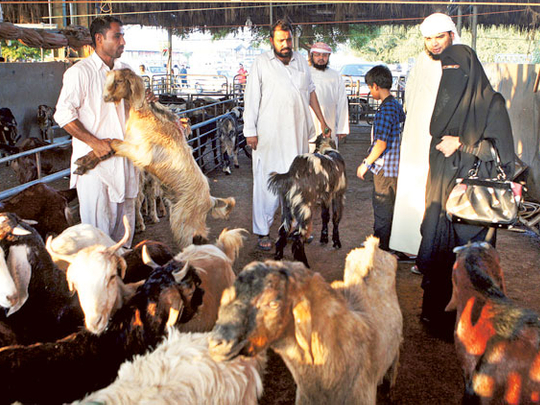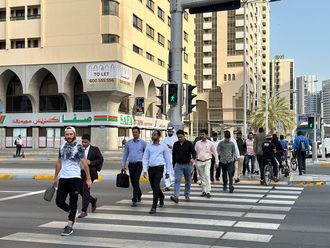
Dubai: The local market is witnessing a significant increase in the number of animals being imported ahead of Eid Al Adha, the Festival of Sacrifice.
Saif Mohammad Al Shar’a, Deputy Assistant of Agricultural and Animal Affairs at the Ministry of Environment and Water, said that livestock is arriving through Guwaifat, Jebel Ali, Al Hamriya port and Ras Al Dara checkpoints.
The ministry, he added, has made preparations for the festival with a series of procedures to ease the flow of animals entering the country while maintaining regulations.
He pointed out the ministry follows special procedures in receiving the sacrificial animals through veterinary quarantine centres in cooperation with local authorities. A schedule for regulating shifts is also set up round the clock seven days a week to coordinate shipments on time.
Some 630,000 animals have been imported since the beginning of this year up to September, and a five to ten per cent increase is expected.
The animals are subjected to a quarantine period and procedures that are applied by all local authorities year-round.
These efforts contribute to enhancing food safety and security while supplying the market with the required quality of meat. They achieve the framework of strategic objectives in enhancing food security and raising the rate of bio-security in the country.
He also emphasised the need for the consumer to slaughter in approved abattoirs and slaughterhouses, noting that slaughterhouses maintain a clean and healthy environment and provide conditions for slaughter according to Sharia and under the supervision of specialist veterinarians.
Al Shar’a clarified that cattle slaughtered for sacrifice must be healthy and free of any disease, based on a report from a veterinarian, and be transported to the slaughterhouse under the health conditions enforced in the country so they are not injured, as this could adversely affect the quality of meat.
The animals must be given a rest period before slaughter of not less than 12 hours, and should be cleaned before entering the slaughter room to avoid contamination of meat.












